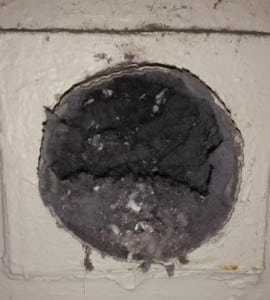Blog
Dryer Fires are Growing Risk in US Homes
According to the U.S. Consumer Product Safety Commission, there are approximately 15,500 fires, 10 deaths, and 10 injuries that can be attributed to dryer fires each year. One out of 7,800 households will experience a fire caused from an improperly maintained dryer vent. With nearly $100,000,000 in damage each year, dryer fires are a large and growing problem.
How do these fires occur?
When a small piece of lint becomes lodged within the vent, it creates a snowball effect where additional debris catches on the lodged debris, increasing the surface area for additional debris to become lodged. Not only do these clogs accumulate in the vents, they also create the perfect storm for a fire, due to the highly-flammable, dry, and heated lint.
Why have dryer fires become more common and more dangerous?

How can dryer fires be prevented?
These types of fires are highly preventable. Make a habit of having your vents cleaned at regular intervals to best minimize the risks associated with lint clogs. A public adjuster can assist in evaluating your risk and can recommend appropriate cleaning intervals for your particular dryer vent configuration. Contact Steven Venook at Advocate Claims Public Adjusters at 954-369-0573 to learn more.

